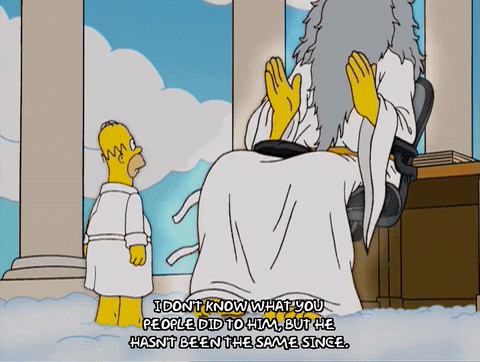What do you think?
Rate this book


327 pages, Hardcover
First published March 31, 2020







There are obviously numerous similarities between the voyages to the afterlife of Odysseus and Aeneas, but one cannot help but be struck especially by the impressive differences. Some six or seven centuries after the Homeric epics, Virgil does not populate Hades with shades that all experience the same boring and pleasure-free existence. He writes of hellish torments for some and heavenly glories for others. Most have to be punished for their sins before being given a second chance at life. Why such a change from Homer? What has led to this invention of heaven and hell?Then the book shifts its attention to the Hebrews. Many readers will be surprised to read the following quotation near the beginning of the book's discussion of the Old Testament.
It is hard to say what among the enormous changes in the political, social, and cultural worlds between seventh-century Greece and first-century Rome might have effected the shift in thinking. But it is relatively easy to see what happened in the realm of ethical thought. Equity had become an issue. Thinkers came to believe that no one can live a life of sin, hurting others, offending the gods, pursuing only self-aggrandizement, enjoying, as a result, wealth, influence, and pleasure, and then die and get away with it. No: everyone will have to face a judge. The wicked, no matter how powerful and revered in this world, will pay a price in the next. Those who have done what is right, however, will be rewarded. (p.78)
There is no place of eternal punishment in any passage of the entire Old Testament. In fact—and this comes as a surprise to many people—nowhere in the entire Hebrew Bible is there any discussion at all of heaven and hell as places of rewards and punishments for those who have died. (p.108)The book goes on to explain in considerable detail that the same is true for the historical Jesus. What the Hebrews developed—and Jesus believed—was the concept of the bodily resurrection of the dead coming during an apocalyptic direct intervention by God in human affairs by setting up the "Kingdom of God" on earth. The early letters by the Apostle Paul continued that expectation, but by the time of his later letters his thinking began to shift.
As it turns out, it is possible to trace a trajectory in our surviving Gospels away from the deeply apocalyptic teachings of Jesus in Mark and Matthew, to less apocalyptic teachings in the later Gospel of Luke, to non-apocalyptic teachings in the still later Gospel of John, to anti-apocalyptic teachings in the non-canonical Gospel of Thomas, written a couple of decades after John. In short, the words of Jesus, over time, came to be de-apocalypticized. (p.229)The theories of Heaven and Hell were further developed in the still later non-cononical scriptures. I found it interesting that the threats of Hell were aimed at non-Christians in the early Christian Era but became more focused on heretical Christians after Christianity became the state religion. As a matter of fact, the very worst punishments in Hell were thought to be reserved for theologians who didn't believe in the bodily resurrection or did not believe that the Eucharist elements were the actual body of Christ.